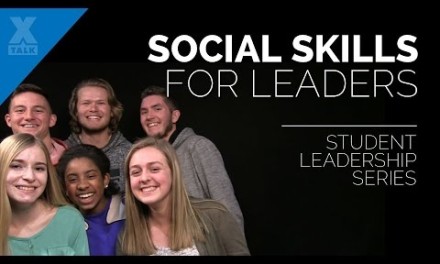How to Have Integrity | Core Virtues #1
What is integrity, and why should students care about it, anyway?
Talking Points:
- Integrity is being the same person everywhere you are. The word integrity comes from same word as “integer” which is defined as “a whole number, not a fraction.”
- Having integrity pays off in the long run, even if it’s not noticed when you’re younger. In the end, people will trust you as they recognize that you are a person of integrity.
- Integrity has to grow like a muscle. Grow it by take an inventory of where you’ve failed in the past, set goals, and surround yourself with others who have integrity.
Discussion:
- Initial reactions to this topic? What jumped out at you?
- What does it mean to you to be the same person everywhere you are? Give an example.
- Think of someone you know that doesn’t have very much integrity. Describe what you notice about them.
- What are some areas in your life where you could have more integrity? Set one or two “integrity goals”.
- Make a list of a few friends who have integrity. Make a separate list of friends or acquaintances who lack integrity. What will you do with those lists?
- Is there a step you need to take based on today’s topic?
How to Have Joy | Core Virtues #2
Joy is life changing, and the good news is that everyone can have it.
Talking Points:
- Joy is the love for life and those around you that can’t be dictated by an outside source. Joy differs from happiness in the sense that joy doesn’t depend on your circumstances or surroundings in life.
- You can be a joyful person, even when you’re going through hard times because you can see the bigger picture.
- Get more joy in your life by being thankful for what you have, surrounding yourself with joyful people and serving others.
Discussion:
- Initial reactions to this topic? What jumped out at you?
- Who is the most joyful person you know? Why do you think they are that way? Were they born with this joy or did they choose to have it? Explain.
- Would most people consider you a joyful person? Explain.
- What’s the number one stressor in your life right now? Is this detracting from your joy? How can you eliminate it without messing up other parts of your life?
- How does being thankful change your outlook on life? How does serving others affect your outlook on life?
- What are some simple things you can start to do to incorporate more joy into your life? Explain.
- Is there a step you need to take based on today’s topic?
How to Have Self-Control | Core Virtues #3
Do you have the power to tame the wild best inside of you? It’ll take self-control.
Talking Points:
- Self-control is choosing what’s right when you’re tempted not to. You have to resist and ignore your initial impulses and have the ability to stop yourself before reacting inappropriately in a given situation.
- Everyone struggles with temptations, but people who learn self-control can fight them. Self-control will also better your relationships with people, and they will respect you more because of your self-control.
- Use these three steps to improve your self-control:
- Take a timeout. When you’re frustrated, take a moment and cool down before acting on anything. Gather your thoughts and think of an appropriate way to handle the situation.
- Zoom out. Look at the bigger picture in and realize that this one event isn’t all there is.
- Exercise. Practice self-control in small situations so that when in big situations come, you’re ready.
Discussion:
- Initial reactions to this topic? What jumped out at you?
- Share a time you reacted on an impulse and had no self-control? How did the situation turn out for you?
- How can self-control benefit you in not giving in to your temptations?
- Have you considered what “triggers” you to engage in unhealthy behaviors? What are some of these triggers?
- How does using the tips provided help to protect you from rash decisions?
- What are some little battles you can win to prepare for some bigger ones?
- Is there a step you need to take based on today’s topic?
How to Take Ownership | Core Virtues #4
Blaming others when things go wrong is a knee-jerk reaction. Try this instead.
Talking Points:
- Ownership means taking responsibility for your part. It means holding yourself accountable for the things that you did (or didn’t do!) and not blaming anyone else.
- Not owning up to your actions and pointing fingers makes people lose respect for you.
- Try these steps next time you need to own up:
- Admit where you finger-point and take more ownership in those areas.
- Balance your perspective by seeing situations from multiple angles.
- Commit to stop making excuses in at least one area of your life.
Discussion:
- Initial reactions to this topic? What jumped out at you?
- What does it mean to you to take ownership of something? Explain.
- Share an experience where you or someone you know failed to take responsibility for something. What was the outcome?
- What are some consequences that can come from not taking ownership in your life?
- What are some areas of your life where you can start taking ownership? Why do these areas stand out to you?
- Is there a step you need to take based on today’s topic?
How to Be Diligent | Core Virtues #5
Many people want to be successful and one of the best at what they do. Why, then, do we see people settle for “just okay?” Why have a dream if you’re going to do nothing to live it? We need diligence.
Talking Points:
- Diligence is about working hard and never giving up.
- Diligence helps you to develop good habits that will carry you through your life.
- How to get more diligent:
- First, don’t procrastinate. Know what you need to accomplish each day and make sure it happens.
- Second: Set goals of what you would like the accomplish. More specifically, set a long-term goal as well as some short-term goals that will help you reach your overall goal.
- Third: push yourself. In every situation there is an easy way out. Choose the hard way because in the long run the hard stuff is what will strengthen you by building your skills and character. You’ll be better off for it in the long-run.
Discussion:
- Initial reactions to this topic? What jumped out at you?
- Who is someone in your life that you think of as a diligent person? What makes them so diligent?
- When was a time in your life when you were not diligent? Explain.
- When was a time in your life when you were diligent? Explain.
- In what areas of your life do you struggle with setting goals and sticking to them? How could you improve that?
- Is there a step you need to take based on today’s topic?
How to Have Wisdom | Core Virtues #6
What do Dumbledore, Gandalf, and Yoda all have in common? They were known to be wise.
Talking Points:
- Wisdom is knowing what’s right and acting on it. Wisdom is about good decision-making.
- Gaining wisdom means being thoughtful and patient. Use the W.I.S.E acronym.
- W: Wait – don’t rush into any major decision.
I: Inspect – what is your “good angel” on your shoulder telling you?
S: Select – Make your best decision, and take ownership of it.
E: Encode – Remember this for next time you need to make a decision
Discussion:
- Initial reactions to this topic? What jumped out at you?
- Name your favorite fictional character who displays wisdom. In what specific ways do they show it?
- Name a real person in your life who displays wisdom. In what specific ways do they show it?
- When you think of a wise person, what are the attributes that come to mind?
- Think of a situation where you displayed wisdom. Explain.
- Think of a situation where you were lacking in wisdom. Explain.
- In terms of the upcoming week, how are you going to remember to be WISE?
- Is there a step you need to take based on today’s topic?
How to Have Courage | Core Virtues #7
Being brave is hard, but we all know deep down we should have courage.
Talking Points:
- Courage is facing your fears when you want to run.
- Courage helps you to stand up in the face of fear. Instead of running from things, you step up and face up to the challenge.
- Three simple steps to help you be more courageous:
- Identify where you are lacking courage and where you’re strongest at it.
- Try new things. Start small, even if it’s just ordering something different at a restaurant. Step out of your comfort zone.
- Stand up for beliefs. It takes courage to stay true to yourself when others don’t want you to.
Discussion:
- Initial reactions to this topic? What jumped out at you?
- Which movie, TV, or book character do you think is the most courageous? What’s the most courageous thing they’ve done? Why is this thing courageous?
- Describe the last time that you did something courageous and it was awesome.
- What are some things that you are afraid of? How can you overcome these fears?
- Name a real person in your life that is courageous. What do you think makes them that way?
- Is there a step you need to take based on today’s topic?
Love for Teens | Core Virtues #8
Love doesn’t just apply to one aspect of your life or one person in your life.
Talking Points:
- Love is elevating others above oneself. Love should not be limited to words. Actions show true love. It’s easy to say you love someone, but truly loving them is shown through consistent practice of compassion.
- Without love, you can’t have real relationships with people. By loving other people, you make them feel valuable, and hopefully they’re return the favor!
- To be more loving, pay attention what the other person needs, give freely without expecting anything in return and discover the love language of the other person and start loving them in their language.
Discussion:
- Initial reactions to this topic? What jumped out at you?
- Who are some people in your life who are great at expressing their love for you? Why are they good at expressing it? How can you copy this and become more loving yourself?
- Why does loving others require sacrifice and intentionality?
- Would others consider you a loving person? Why or why not? Explain.
- What’s your “love language” (how do you express love)? Why can you be a better friend by learning the love language of your friends?
- Is there a step you need to take based on today’s topic?
Respect | Core Virtues #9
Respect. It’s a word we hear all the time, but what is it and why does it matter?
Talking Points:
- Respect is about valuing someone as a human being.
- Being respectful will help you to garner favor with others and people will want to hear what you have to say.
- How to show respect:
- Listen. It is always good to listen to whatever someone has to say. Listening is the easiest way to show someone respect.
- Encourage. Encouraging others helps them feel important and respected. This can be as simple as saying a few uplifting words or even a smile.
- Be Helpful. If someone you know is struggling, it is always good to lend a helping hand. Even if they are not your favorite person in the world, it is good to show your respect by giving them some assistance.
Discussion:
- Initial reactions to this topic? What jumped out at you?
- Think about someone you respect. What is it about them that makes them so respectable.
- Explain a time when you feel you did not get the respect you deserved. Why did you feel this way?
- What is the difference between respecting someone and showing respect toward someone? Explain.
- What are some ways you could show respect to the people around you?
- Is there a step you need to take based on today’s topic?
Patience | Core Virtues #10
Patience is an important part of all relationships. There are going to be times when you need to be patient with people, and if you're not, you might lose that person’s trust and friendship.
Talking Points:
- Patience is enduring, often under difficult circumstances, and hopefully without complaining.
- We need to have patience with people and with difficult circumstances in life. Things don’t always work out on our timeline or the way we want.
- Grow patience in your life by being aware of what causes you to be impatient, find the positives in those situations and be okay with feeling uncomfortable from time to time.
Discussion:
- Initial reactions to this topic? What jumped out at you?
- Describe the most patient person you know. What can you learn from how they respond to annoying situations?
- Describe a time when you were impatient. What situations or types of people tend to test your patience? Explain.
- Are you a person that people need to be patient with? Explain.
- What steps do you need to take to be more patient?
- Is there a step you need to take based on today’s topic?
Gratitude for Teens | Core Virtues #11
Gratitude is one of the simplest virtues to practice, so why is it so lacking in our culture?
Talking Points:
- Gratitude is appreciating what you have and who gave it.
- Gratitude helps us to be positive in life and enables us to appreciate all that we have.
- Ways to show gratitude:
- Look for areas in your life that you are thankful for. Start simple, like the fact that you have a roof over your head and food to eat.
- Give at least one compliment a day. Instead of complaining about how hot it is outside, talk about how good of a day it is to go swimming, for example.
- Keep a gratitude journal. Look for one thing in you life that you are thankful for every day, then write it down. It is a great thing to go and look back on when you are having a rough day.
Discussion:
- Initial reactions to this topic? What jumped out at you?
- Describe someone you know who has a lot of gratitude. What do you think of them? What do you think is their secret to having so much gratitude?
- What is the first thing you think of when you think about the word “gratitude?” Why?
- What are some areas of your life where it is easy for you to have gratitude? Where is it hard for you?
- Is there a step you need to take based on today’s topic?
Generosity for Teens | Core Virtues #12
Generosity is a sense of kindness and respect for those around you. It’s not necessarily a “give and take” type of deal.
Talking Points:
- Generosity is giving willingly beyond your comfort zone and not expecting anything in return.
- Generous people make the world a way better place to live. Generous people are usually well-liked for a reason, and it’s because they are genuinely caring about those around them and not just looking out for themselves.
- Look to become more generous in your life and it doesn’t just have to be about money. You can be generous with your time and talents.
- Identify some areas in your life in which you may lack in generosity. Why are these areas lacking? Who’s a generous person in your life that you can try to emulate?
- Develop those areas where you may be lacking in generosity. Make an effort everyday to consciously focus on and do little things throughout your day to improve those areas.
- Surround yourself with generous people. It’s a lot easier to be a generous person when everyone else around you is striving to be the same.
Discussion:
- Initial reactions to this topic? What jumped out at you?
- Write down five pros of being a generous person. Why did you choose these things?
- Who is the most generous person you know? Why do you think they are so generous? Do you think it’s easy for them to be generous or is it something they have to work hard at? Explain.
- Be honest, would those in your life consider you a generous person? Why or why not? If not, how much better could your relationships with those people be if you were able to start living a more generous lifestyle?
- Identify an area where you can be more generous. What can you do to grow in generosity in that area?
- Is there a step you need to take based on today’s topic?
How to Have Loyalty | Core Virtues #13
“Man! Brutus, Judas, and Benedict Arnold are the most trustworthy people I know…” said no one ever.
Talking Points:
- Loyalty is staying committed through adversity, putting in the work, and staying with it. With loyalty comes a lot of faith in a person or idea.
- Loyalty is important because it is a key aspect of having strong and healthy relationships. This goes beyond just being loyal in romantic relationships, and extends to your relationships with your friends and family. Without loyalty, there isn’t really much of a relationship.
- 3 Steps to loyalty:
- Identify three of your most truly loyal friends.
- Ask why they are your most loyal friends? What do they do that makes them “loyal?”
- Replicate their behavior in you in your own life.
Discussion:
- Initial reactions to this topic? What jumped out at you?
- How do you define “loyalty?” What’s the first thing or person that comes to your head?
- Take the person from the question above and list attributes that make them loyal. How many of these attributes do you see in yourself? Explain.
- Why does loyalty matter to you?
- Think of a time your loyalty has been tested. What happened and what was the result?
- Now think of a time that you’ve put too much loyalty in someone or something. What did you learn from this?
- How are you going to let the lessons from this lesson influence you in the upcoming weeks? Are there people that you will be more loyal to? Less loyal? Explain.
- Is there a step you need to take based on today’s topic?
How to Have Forgiveness | Core Virtues #14
For our last core virtue we are talking about something that is often times very hard to give: forgiveness!
Talking Points:
- Forgiveness is “extending grace when it’s not expected.” Forgiveness is a gift that you give to someone whether they’ve asked for it or deserve it.
- Without forgiveness, people begin to form grudges and grudges become toxic and unhealthy both physically and mentally.
- Here are the four things you can give to help you be more forgiving:
- Respect.
- Acceptance.
- Love.
- Self Control.
Discussion:
- Initial reactions to this topic? What jumped out at you?
- Share a time you were forgiven when it was not deserved?
- Share a time you chose to forgive someone. Why did you choose to do that?
- Who do you think of when you hear the word “forgiveness”? Why?
- How have you seen grudges ruin someone’s life. How have grudges ruined you in the past?
- How can each of the four tips help you to learn to forgive?
- Is there a step you need to take based on today’s topic?






